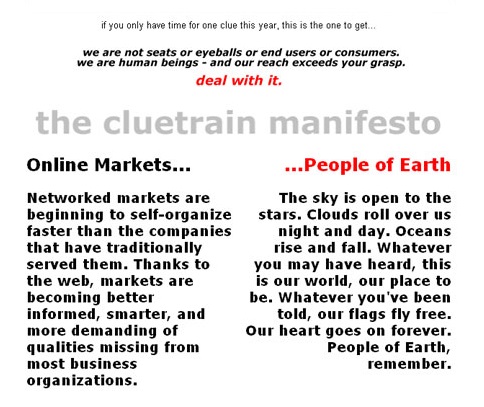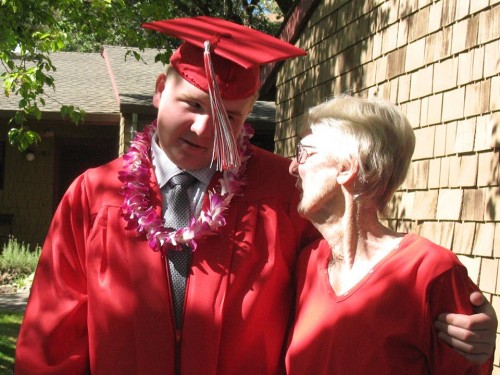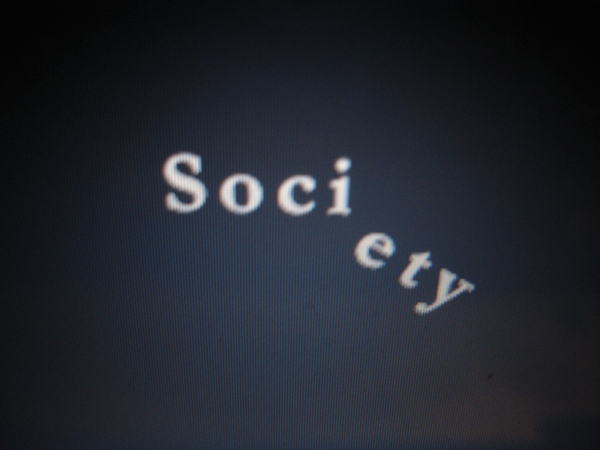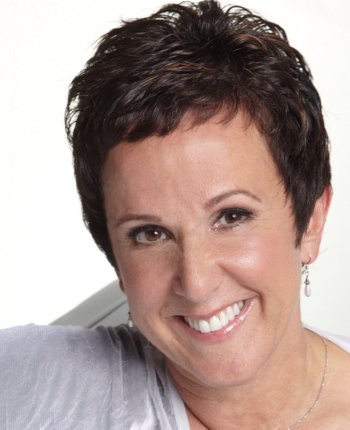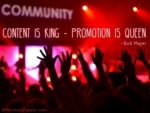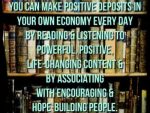I’m tired this week. Life as a start-up participant and leader isn’t always sunshine and rose petals.
Sometimes I grow exhausted from the cause and wonder if I have what it takes to press on. Entrepreneurial pursuits are a marathon. If you have ever run a real marathon, then you know about the times you feel like stopping to lay collapse on the lawn you’re running past.
Your brain screams, “I’m tired! Stop this! You will never going to make it all the way!”
This will happen whenever you push yourself beyond your perceived limits. What do you do when you feel pushed to the edge and your soul aches for you to stop?
Do you throw in the towel or do you press on?
Whenever these thoughts enter my head (and it’s not often, but my son lost one of his grandmothers this week as I watch my mother deal with the debilitating effects of dementia) I wonder how I can make it. I am tempted to stop.
Deep in my heart I know that this is “life” and life happens whether you are living your dreams, or not. No one ever said this was going to be easy.
When I feel flat with my dream, I put on my reporter hat and travel out into the Internet to see what is being said about my particular dream genre. This week, I Googled “blogging” and browsed through the news to see what was being written about this online revolution I have languished in since starting my first blog on AOL back in the day.
Search helped me to stumble upon a story by attorney, Kevin O’Keefe, about David Weinberger, who co-authored 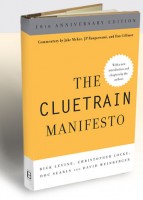 the Internet cult classic, Cluetrain Manifesto, whose work at Harvard and as an a author focuses on how the Internet is changing human relationships, communication, and society.
the Internet cult classic, Cluetrain Manifesto, whose work at Harvard and as an a author focuses on how the Internet is changing human relationships, communication, and society.
He mentioned how Weinberger spoke at a recent Fellows Hour where the topic was, “What Blogging Once Was.” I read the article and then I decided to hop on over to Weinberger’s blog, since he’s someone who I’ve admired ever since that fateful day in 2001 when I first read his manifesto on how the Internet and blogging was going to change business as usual, to see what he has to say on the subject this many years later.
And there it was … his thoughts on blogging… and it’s beautiful history … he reminded me why I love it so much —
****
What Blogging Was by David Weinberger
I apparently began blogging in 1999, which makes me early to the form. But, I didn’t take to it, and it was only on Nov. 15, 2001 that I began in earnest (blogging every day for twelve years counts as earnest, right?), which puts me on the late edge of the first wave, I believe.
Blogging at that point was generating some interest among the Technorati, but was still far from mainstream notice. Or, to give another measure, for the first year or so, I was a top 100 blogger.
(The key to success: If you can’t compete on quality, redefine your market down.)
Blogging mattered to us more deeply than you might today imagine. I’d point to three overall reasons, although I find it not just hard but even painful to try to analyze that period.
1. Presence.
I remember strolling through the vendor exhibits at an Internet conference in the mid 1990s. It seemed to be a solid wall of companies large and small each with the same pitch: “Step into our booth and we’ll show you how to make a home page in just 3 minutes.” Everyone was going to have a home page. I wish that had worked out. But even those of us who did have one generally found them a pain in the neck to update; FTPing was even less fun then than it is now.
When blogs came along, they became the way we could have a Web presence that enabled us to react, respond, and provoke. A home page was a painting, a statue. My blog was me. My blog was the Web equivalent of my body. Being-on-the-Web was turning out to be even more important and more fun than we’d thought it would be.
2. Community.
Some of us had been arguing from the beginning of the Web that the Web was more a social space than a publishing, informational or commercial space — “more” in the sense of what was driving adoption and what was making the Web the dominant shaping force of our culture. At the turn of the millennium there was no MySpace (2003) and no Facebook (2004).
But there was a blogging.
If blogging enabled us to create a Web presence for ourselves, blogging was also self-consciously about connecting those presences into a community. (Note that such generalizations betray that I am speaking blindly from personal experience.)
That’s why blogrolls were important. Your blogroll was a list of links to the bloggers you read and engaged with. It was a way of sending people away from your site into the care of someone else who would offer up her own blogroll. Blogrolls were an early social network.
At least among my set of bloggers, we tried to engage with one another and to do so in ways that would build community. We’d “retweet” and comment on other people’s posts, trying to add value to the discussion. Of course not everyone played by those rules, but some of us had hope.
And it worked. I made friendships through blogging that maintain to this day, sometimes without ever having been in the same physical space.
(It says something about the strength of our community that it was only in 2005 that I wrote a post titled No, I’m not keeping up with your blog. Until that point, keeping up was sort of possible.)
3. Disruption.
We were aware that the practice of blogging upset many assumptions about who gets to speak, how we speak, and who is an authority. Although blogging is now taken for granted at best and can seem quaint at worst, we thought we were participating in a revolution. And we were somewhat right. The invisibility of the effects of blogging — what we take for granted — is a sign of the revolution’s success. The changes are real but not as widespread or deep as we’d hoped.
Of course, blogging was just one of mechanisms for delivering the promise of the Net that had us so excited in the first place. The revolution is incomplete. It is yet deeper than we usually acknowledge.
To recapture some of the fervor, it might be helpful to consider what blogging was understood in contrast to.
Here are some of the distinctions discussed at the time.
Experts vs. Bloggers.
Experts earned the right to be heard. Bloggers signed up for a free account somewhere. Bloggers therefore add more noise than signal to the discussion. (Except: Much expertise has migrated to blogs, blogs have uncovered many experts, and the networking of bloggy knowledge makes a real difference.)
Professionals vs. Amateurs.
Amateurs could not produce material as good as professionals because professionals have gone through some controlled process to gain that status. See “Experts vs. Bloggers.”
Newsletters vs. Posts.
Newsletters and ‘zines (remember when that was a word?) lowered the barrier to individuals posting their ideas in a way that built a form of Web presence. Blogs intersected uncomfortably with many online newsletters (including mine). Because it was assumed that a successful blog needed new posts every day or so, content for blogs tended to be shorter and more tentative than content in newsletters.
Paid vs. Free.
Many professionals simply couldn’t understand how or why bloggers would work for free. It was a brand new ecosystem. (I remember during an interview on the local Boston PBS channel having to insist repeatedly that, no, I really really wasn’t making any money blogging.)
Good vs. Fast.
If you’re writing a couple of posts a day, you don’t have time to do a lot of revising. On the other hand, this made blogging more conversational and more human (where “human” = fallible, imperfect, in need of a spelpchecker).
One-way vs. Engaged.
Writers rarely got to see the reaction of their readers, and even more rarely were able to engage with readers. But blogs were designed to mix it up with readers and other bloggers: permalinks were invented for this very purpose, as were comment sections, RSS feeds, etc.
Owned vs. Shared.
I don’t mean this to refer to copyright, although that often was an important distinction between old media and blogs. Rather, in seeing how your words got taken up by other bloggers, you got to see just how little ownership writers have ever had over their ideas. If seeing your work get appropriated by your readers made you uncomfortable, you either didn’t blog or you stopped up your ears and covered your eyes so you could simulate the experience of a mainstream columnist.
Reputation vs. Presence.
Old-style writing could make your reputation. Blogging gave you an actual presence. It was you on the Web.
Writing vs. Conversation.
Some bloggers posted without engaging, but the prototypical blogger treated a post as one statement in a continuing conversation. That often made the tone more conversational and lowered the demand that one present the final word on some topic.
Journalists vs. Bloggers.
This was a big topic of discussion. Journalists worried that they were going to be replaced by incompetent amateurs. I was at an early full-day discussion at the Berkman Center between Big Time Journalists and Big Time Bloggers at which one of the bloggers was convinced that foreign correspondents would be replaced by bloggers crowd-sourcing the news (except this was before Jeff Howe [twitter: crowdsourcing] had coined the term “crowd-sourcing”). It was very unclear what the relationship between journalism and blogging would be. At this meeting, the journalists felt threatened and the bloggers suffered a bad case of Premature Triumphalism.
Objectivity vs.Transparency.
Journalists were also quite concerned about the fact that bloggers wrote in their own voice and made their personal points of view known. Many journalists — probably most of them — still believe that letting readers know about their own political stances, etc., would damage their credibility. I still disagree.
I was among the 30 bloggers given press credentials at the 2004/2005 Democratic National Convention — which was seen as a milestone in the course of blogging’s short history — and attended the press conference for bloggers put on by the DNC. Among the people they brought forward (including not-yet-Senator Obama) was Walter Mears, a veteran and Pulitzer-winning journalist, who had just started a political blog for the Associated Press. I asked who he was going to vote for, but he demurred because then how could we trust his writing? I replied something like, “Then how will we trust your blog?”
Transparency is the new objectivity, or so I’ve been told.
It is still the case that for the prototypical blog, it’d be weird not to know where the blogger stands on the issues she’s writing about. On the other hand, in this era of paid content, I personally think it’s especially incumbent on bloggers to be highly explicit not only about where they are starting from, but who (if anyone) is paying the bills…
****
I smiled and laughed as a read his thoughts and I realized how much has remained the same from when I first started blogging. He concludes his peace by saying that “blogging lives” (You should read him in full by clicking here).
I was most happy to read him say that!
I remembered that my dream has been part of the online revolution. His words reconnected me with the reasons why I put myself out there in the world with blogging.
Blogging is who I am.
Blogging changed my life.
Blogging made me a better writer.
Blogging brought me friends from all around the world and opened my mind.
Blogging healed me as it hugged me. It has given me so much. I couldn’t stop even if I tried.
This past year blogging carried me and I imagine it will continue to do so as I lose my mother and eventually see my son leave for some far away college.
Blogging will be right here waiting for me to continue changing my life — just as it always has.
It’s now more than an online revolution. It’s my dream life.
Catherine
Please check out David Weinberger on his blog, JoHo the Blog.
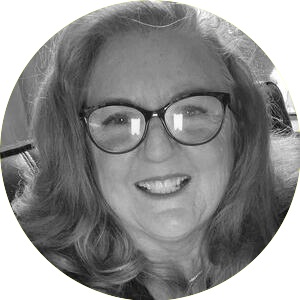
Catherine Hughes is an accomplished magazine columnist, content creator, and published writer with a background as an award-winning mom blogger. She partners with companies to create captivating web content and social media stories and writes compelling human interest pieces for both small and large print publications. Her writing, which celebrates the resilience and achievements of Northern California’s residents, is featured in several magazines. Beyond her professional life, Catherine is passionate about motherhood, her son, close friendships, rugby, and her love for animals.
Note: Articles by Catherine may contain affiliate links and may be compensated if you make a purchase after clicking on an affiliate link.
